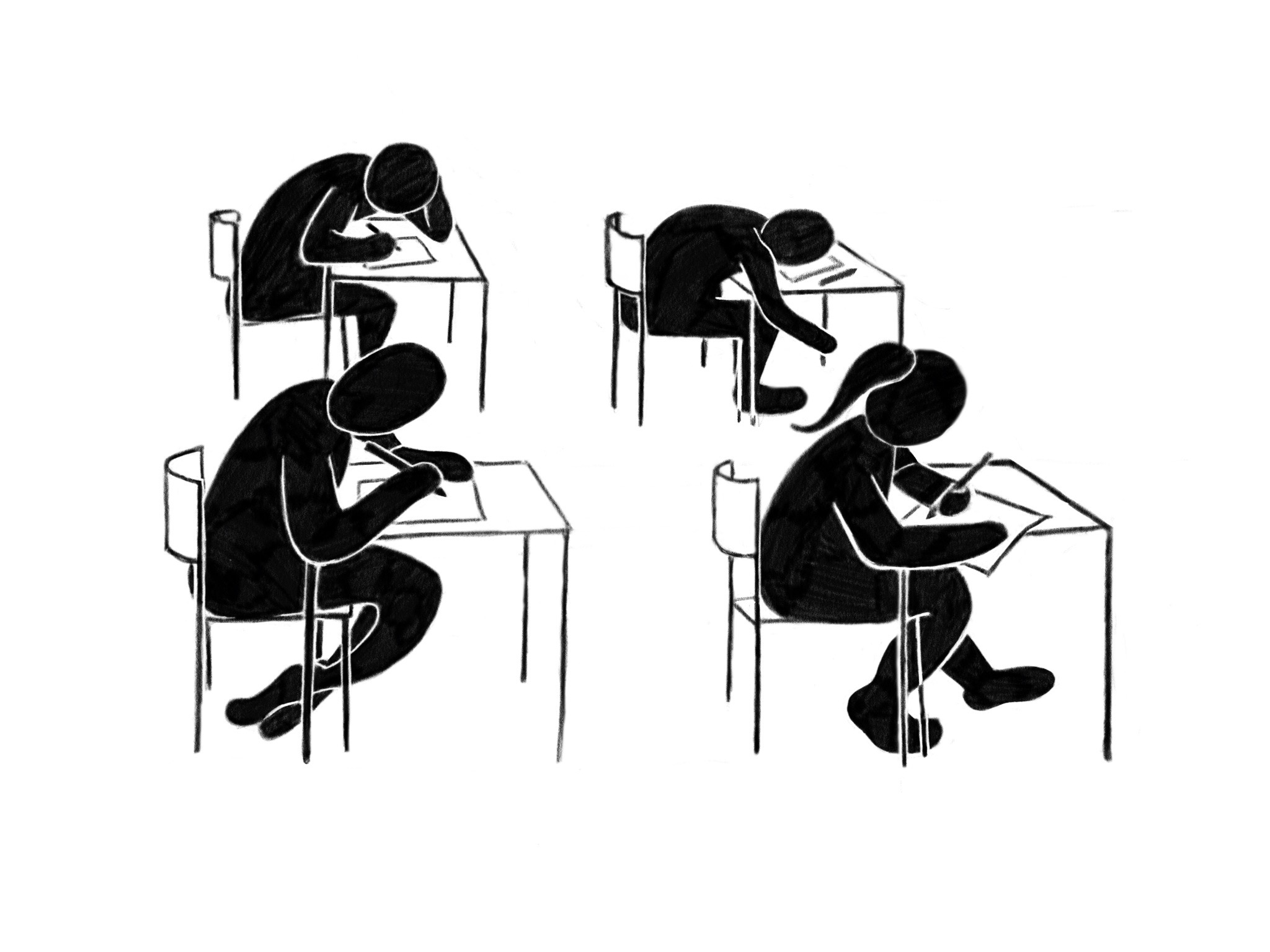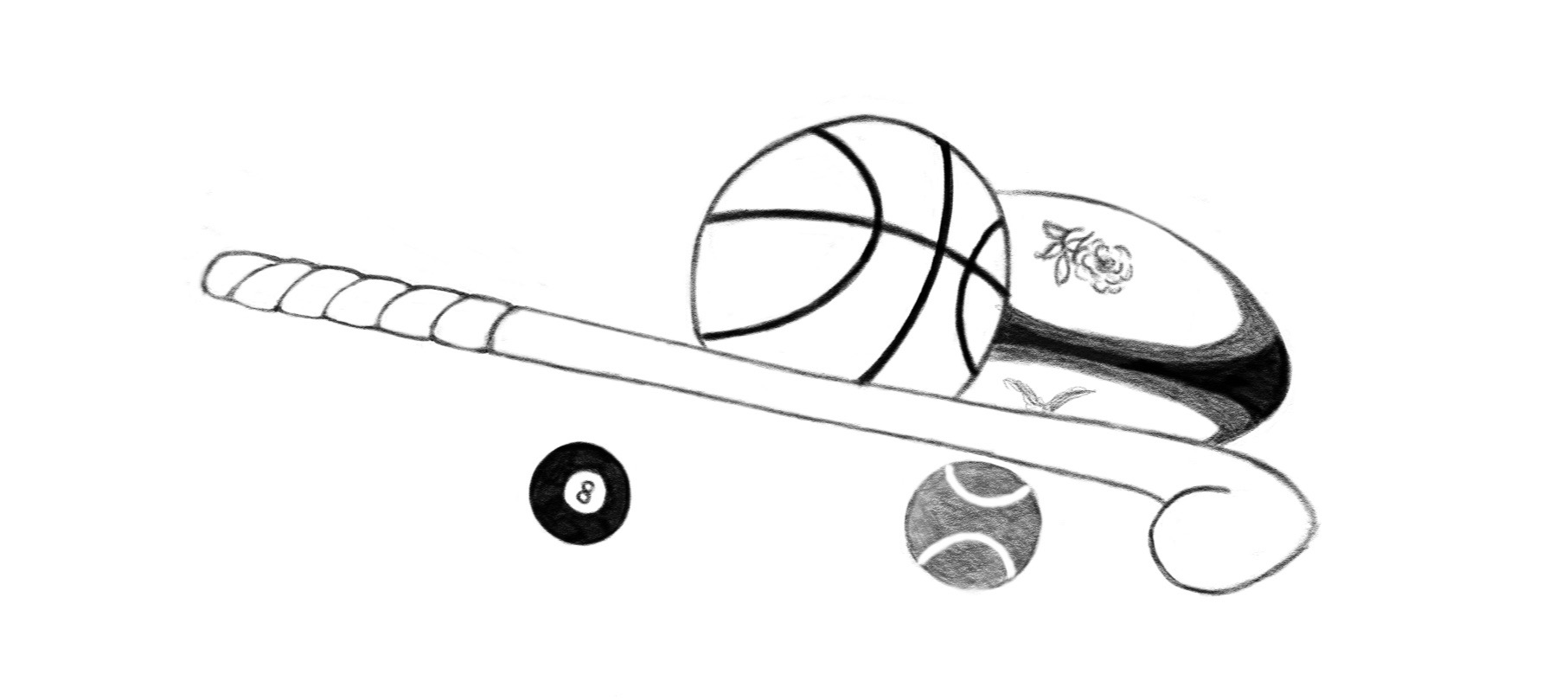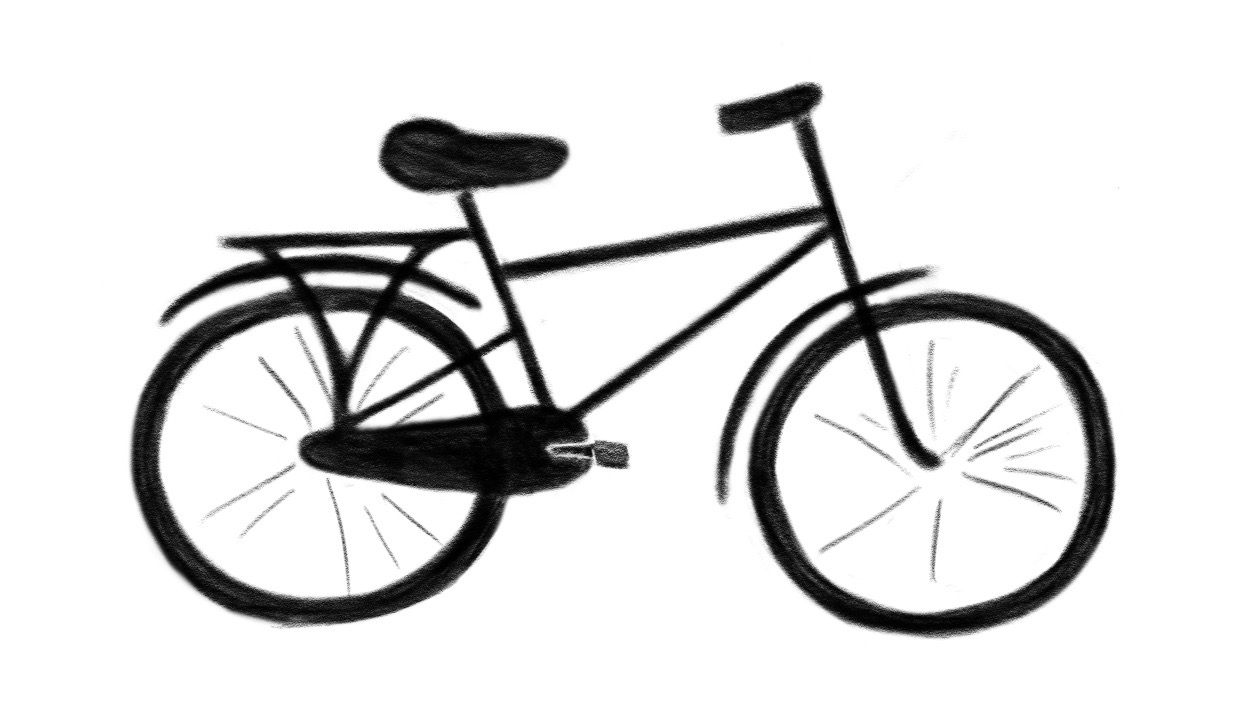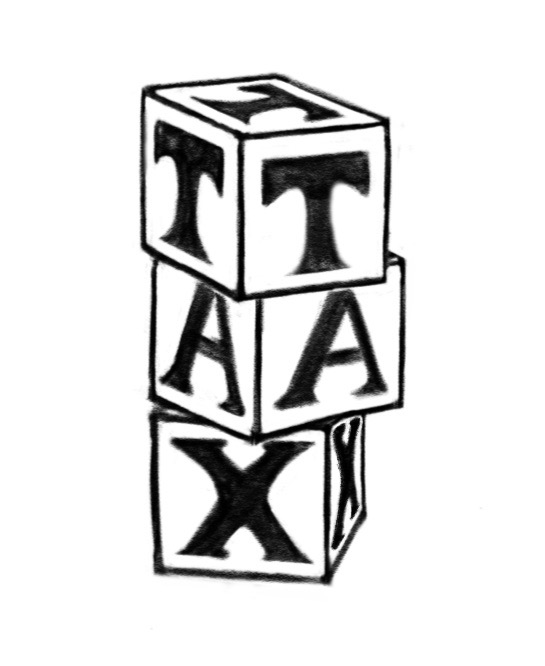Finances

To home educate your children is expensive. For most, it is considerably cheaper than private school, but compared to sending your child to state school, once the opportunity cost of one parent not working full-time is taken into account, it will probably cost you more. But how much more? That is the question…
Home ed is definitely easier the more money you have, but living in a country that is no longer set up for families to live off one income (or less), it is more than likely that you will have to make some compromises somewhere along the line.
The more money you have, the more you can pay for someone else to take the extra strain, experiment with different types of resources or even get something as straightforward as a cleaner to make your life easier (I can but dream!), however, that does not mean you cannot do it on a shoe-string, and more importantly, do it well. It will just be a little bit harder for some than others.
- Cost of Exams
- Cost of Organised HE Groups
- Cost of Resources
- Cost of School Trips
- Cost of Sport
- Cost of Transport
- Cost of Tutors
- Opportunity Cost
- Total Cost
- Personal Finances
_____________________________
Cost of exams
Music & Dance Exams
You can expect to pay anything from £40 to £100, depending on level. If an accompanist is needed, that can cost up to £150 per exam.
Royal Academy of Dance qualifications are similar in price to music exams, but there are some cheaper dance qualifications preferred by some dance schools that go from about £20 up.
GCSEs/IGCSEs
The cost of sitting exams generally goes from £100 per subject (if you are really lucky) up to about £450 a subject. It can cost more if you are the only one being invigilated, have special requirements or are taking exams outside of the exam centre’s usual examination periods. Language orals will also cost more. Some schools will be kind enough to charge you at cost (around £60 to the exam board), but it is very rare for them not to include admin costs of some description. £30 is good, but £120 or more is not uncommon.
Cambridgeshire LA have been subsidise exams for year 11 students for the last few years, but only up to the cost of £300. It is better than nothing, but is a drop in the ocean for most HEors. You can also take a couple of GCSEs or other qualifications for free with some FE colleges if you are between 14 and 16 (https://he-exams.wikia.org/wiki/College).
A-levels
There are no subsidies for A-levels. You are looking at around £400+ a subject. If they involve practicals, as you would expect for the sciences, you have to pay for them separately. Then you can be going into the thousands, just for one A-level.

_____________________________
Cost of Organised HE Groups
It is probably harder to do cheaply now than it was even a couple of years back, as there is just so much more on offer. If your children are not signed up to everything they possibly could be, you feel the guilt of having limited their opportunities and friendship circles (it’s not rational, so don’t spend too long trying to make sense of it), whereas there used to be only one or two regular HE groups you could sign up for, so it was much more ‘do-able’ for bigger or penny-counting families.
There are a couple of groups that run for free. These are nearly always ones that meet up in the park (so no room hire costs). The park groups are really popular with the junior school-aged families, but very few over 11s attend. Occasionally, someone will run a group in their own home and open it up to the wider community, but you really can’t guarantee a group like that will be available to you when you start HEing, unless, of course, you plan on starting one up yourself. Sadly, house size tends to be the biggest limitation on this front.
There are two types of groups that run at cost, those where all the work is done by the parents for free and the cost of the resources and room hire are shared out, and those that are organised by HE parents, but they pay for an external tutor. Obviously, there is a big difference in the price between these two groups. The ones without private tutors are usually about £3 per child, with a cap of about £6 a family. This will cover room hire and any resources needed for the sessions. Those groups with private tutors tend to be £3/4 a child for sport if hall hire isn’t needed and up to £6 if it is needed or is a specialist sport, £6 per child for things like drama, philosophy etc., and up to £10-15 a child for GCSE subjects and art.
(Anecdotally) there has also been a rise in the number of primary (‘primary’, as in the main/first, rather than ‘primary’ junior school) HEors who have had to earn some sort of income to financially sustain HEing. This has led to quite a few combining the two things, so whereas virtually all groups used to be run on a voluntary basis and everyone chipped in with their own expertise, more HE families are running groups for profit. They often cost less than they would expect from a private tutor as they are just starting up as a business, and usually charge around £5 per child per session.

_____________________________
Cost of Resources
As you have probably guessed, the resources people need can vary a lot not only in nature, but also in price.
What is deemed a necessary resource depends entirely on the route you and your child plan to take through education. Unfortunately, you often have to try a lot of wrong paths and dud resources first to find out what works best for you. Thankfully, the best things aren’t always the most expensive, so don’t feel guilty if you haven’t bought everything that is on the market. Many also find that the more you have, the less you use.
The resources you will probably have to budget for are…
Books
For many HEors, books are a big monthly outlay. Spreading out the cost in numerous shopping trips helps you feel like you’re not spending so much, but ultimately, the same amount will keep coming out of your pocket. Most use libraries very regularly, but you will still find yourself buying many, many more books besides. All I can say is charity shops. They are the best for early readers books, children’s pulp fiction (you know who you are, Percy Jackson, Katniss Everdeen and Bella Swan), and random books to support your projects. The phone-box libraries can also be a great treasure trove too.


Computers & the Internet
Most would really struggle without a computer and the internet, but some do it very successfully without either. You can access computers free of charge in the public libraries, but if you are doing GCSEs, you might want to find another way to print off past papers as it will cost a huge amount printing anywhere that charges per sheet.
Games & Educational Toys
A huge number of HE families use games extensively during their children’s early years (ours had a massive Orchard Toys habit). These can get really expensive, but there is a good online second-hand market in them, Freecycle often throw up a few pieces every now and again, and as always, charity shops are a great place to look. As they get older, the number of games you buy shrinks, but they do get more expensive. How pricey this is going to be for you is entirely family dependent, but generally, the harder your children find it to learn by the conventional route, the more you are going to find yourself spending on games.
Jigsaws are really easy to come by in the charity shops, particularly the ones for the under 5s and the 1,000-piece ones that old ladies like, but if you are looking for more specialist ones that cover, say, the periodic table or a map of the UK, you will probably have to get them new.
As for educational toys, we all have millions, most of which never get used, but many people will also invest very heavily in one particular thing, e.g. lego, kapla, marble runs, those wooden railways etc. etc. If you are building up a big set, expect to pay out hundreds, sometimes thousands. Thankfully, they are not an HE essential, but sadly, you don’t get the same end effect and, as a result, engagement from children with the smaller sets – when you have a big vision, 8 pieces of lego just aren’t going to cut it. There are a number of HE lego groups set up to try and get round this, and they can be fabulous, but difficult to set up unless someone is already willing to fund the start-up costs. Most of these things can be bought second-hand for less, but they still carry a hefty price tag.


Science Equipment
Some steer well clear of this one, others spend a fortune. You don’t need any equipment even if you want to go all the way up to GCSE, but in order to bring the theory to life, the more you can spend (generally) the better. The small kits can be quite good if you only want to dabble, but if you have a child that is planning to take a scientific route (or nuclear world domination), it will start to cost you in terms of resources. Even fairly basic things like magnets cost more than you imagine.
Sports Equipment
It completely depends on how sporty your child is. Some never do any. Most of the big out-of-school clubs will require a reasonable amount of kit, such as rugby, football, hockey, cricket etc., but the majority of home-ed sporting activities require minimal outlay, and you just pay for the lessons. HE sports groups are plentiful, but these tend to be less competitive in nature and more about the socialisation than the skill. Things like ice-skating, swimming, skateboarding, dance and multi sports are the general type of activity on offer in HomeEdland.


Stationary, Arts & Craft Materials
You often forget it as a cost, because you think you would be buying it if your child was going to school anyway, but when HEing you will be buying a whole lot more than your bog-standard family. Unfortunately, there is little way around that one. Children learning to write, draw, paint, take notes, do projects and past papers etc. by using paper, pens, rulers, printer ink etc. etc., and art materials, in particular, can cost you a small fortune. It probably won’t be your biggest cost, but you will still notice it. If you can, get a printer that is refillable rather than one that needs cartridges, that will save a lot in the long run – the cartridges were costing us £50 a month at one point.
You can get away with cheap art materials (Craftworks, Wilkos etc.) when your children are small, (e.g. paint brushes that you know are going to be trashed, paints that they are just going to mix to make yet another brown picture, paper that tears if more than one wash of water goes on it etc.) but even toddlers can’t produce the same work as they can with better materials, which, for some, might put them off producing art at all. The best chunky pens are Stabilo Woodys, but they rock in at £15 for 10, which is quite a lot more than a £1 pack of wax crayons.
If you plan on raising a Leonardo, spend as much as you can on the best art materials as young as you can. If your child and you are not so bothered, you can cut a few corners. Annoyingly, art is one of those things that in order to produce one fantastic piece of work, you need to produce 100 rubbish ones first. This means you have to be prepared for resources to be ‘wasted’ all over the place if you want to get anywhere. Harsh as it may sound, if money is really tight, you might want to consider encouraging your child to become a fine pencil sketcher, a junkyard collager, or steer in a slightly different direction all together. Craft materials are slightly cheaper than fine art materials, but either way, if you have an arts or crafts fiend, the costs will mount.
Textbooks
They are necessary if you are taking any formal qualification. They can be really expensive, particularly if you need several for one subject. We expect to spend a couple of hundred at the start of each academic year for about 4 GCSE subjects, and that includes a large number of the books being second-hand. Costs can be reduced by buying second-hand from online book sellers, and very occasionally you can find them in charity shops, but if you are looking for second-hand it is often easiest to ask on the exam forums (after results have been released) and see if any HEor has the texts you want for sale. Unfortunately, second-hand isn’t an option when new syllabuses with new textbooks come into being, and then you often expect to spend about £25 a textbook.
Do try and look through as many text-books as you can before you buy (other HEors will often let you look through theirs), as not all books suit all students. And not all books cover each topic as well as others.


Workbooks
Many never use them – there is nothing in them that you can’t cover in numerous other ways – but on the whole more probably do than don’t, particularly for English and maths – it gives great reassurance that you are working to a similar standard as you would expect from a good state school. This cost generally gets spread out over a whole year, so you tend not to notice too much, but when added up, at junior level, you are probably looking at about £40 odd pounds over the course of the year. We cut costs by only buying one of each workbook and getting the children to complete the answers in a standard exercise book. We also bought many of the books when bulk offers were on (three for the price of two, that kind of thing). You can get some of the workbooks second-hand, but you have to keep your eyes peeled well in advance of needing the books to make sure you get a copy by the time you’re ready for it.
You might want to try quite a few different ones early on to see what style best suits your child (the lower the key stage, the cheaper the workbooks), and some will stick with just the one workbook set the whole way through their child’s education, but many chop and change as some books are better at covering some topics than others, and, of course, boredom can creep in. The more varied you are in your approach to workbooks, the more it is going to cost. If you are wanting to cover all subjects this way, it will obviously cost you more too.
KS3 and above books cost quite a bit more than the junior ones, and we did spend a fortune when our first child hit year 7. It is quite common for parents to suddenly panic when their first gets to senior school age and the little lovelies have still not gone to school, despite your very best efforts to persuade them otherwise. As a result, you buy millions of workbooks that cover every subject, pop them on your bookshelf and you feel one hundred times better. Naturally, only about two of the books ever get used, but it does wonders for your nerves. If this is you, try and get as many of them second-hand as possible, otherwise, like us, you will be paying the price. It is made all the worse by some workbooks (yes, I’m talking about you, Cambridge Checkpoint, grrr) not giving you the answers and expect you to pay for the teacher pack too. This can cost up to £100 per book. Ask on HE forums before you buy. Many other HEors will be willing to share the answers with you, or split the cost of the answer book. This is a common problem and gets all the more expensive the higher up the education ladder you go.
At KS3, many workbooks also expect you to be following on with the accompanying course book. These seriously bump up the price. Whether they are worth it or not really depends on how your child learns. If at all possible, look through as many different books as you can to find the ones that work for you. Asking people in HE groups to bring theirs for you to peruse is often the best way, as you can see for yourself what the book is like but you also get the added bonus of the book owner being able to share their own personal opinion of what they liked/didn’t like, etc., meaning you don’t have to find it all out for yourself.
_____________________________
Cost of School Trips
For some, trips and out-and-about learning are an integral part of their child’s education, and it can cost them well into the thousands. For others, it is an optional extra.
These are as cheap or as expensive as you like. There are many that you can do for free, but of course you will be paying for your own transport, so if it is a London trip, not so free after all.
Family rail cards will cut your travel down a fair bit (https://www.familyandfriends-railcard.co.uk), as will not travelling at peak times (either by train or in a car). Sometimes people also share lifts by asking on the forums if anyone else is going on the same trip, and that can reduce the cost too.
The trips you do pay for generally range in price from £5 to £20 per child. Sometimes you will have to pay for the parent separately, and sometimes they can go along for free. For school trips that are more expensive than this, it can be very hard to get an HE group together, so they tend not to run.
For expensive places to visit, it is nearly always cheaper booking as a school group, and getting the schools’ discount. This may mean work on your part to organise, but it can often be worth it, not least because you have more people to go with, making it quite a fun thing to do.
If travel is a big part of your child’s education, you can easily start looking at well over the price of private education (world or road schooling), but it is also possible to do it on a shoe-string budget. Many HEors will travel around Europe in a camper van for a few years, either living off the income of renting out their own house and spending their savings, or taking their job with them if they work remotely (hoorah for the internet!). It is possible to live off very little if you are not paying everyday bills at home, and you can gain an incredible learning experience for the whole family.

_____________________________
Cost of Sport
Many HEors ditch sport all together, so this never becomes an expense for them, but for others, they will join many out-of-school sports groups that perhaps they wouldn’t if their children went to school. Ours do a large number of sports, so this has become a very real expense for us.
If you are joining a club, they will sometimes waive the annual membership fee if money is incredibly tight, but these will more than likely be community-based sports groups, such as rugby. This won’t be possible for profit-making groups such as dance.
You can obviously take up many sports without joining clubs and groups, e.g. swimming, running, tennis, cycling etc., which will save a lot of money, but you may find it harder to be disciplined about doing the sporting activity without a team and timetable to push you on.

_____________________________
Cost of Transport
Most HEors will travel a lot. Annoyingly, our friends are not all just-round-the-corner. They are often 30 minutes or more away. If you can drive and you have a car, a large chunk of your HEing time will be spent in a car. Consequently, your fuel bills and car maintenance costs will rise accordingly. Depending on how much you travel, this can get really, really expensive, pushing travel into hundreds a month.
You can HE and not drive, but it is trickier to get to many of the activities. Thankfully, enough activities are on major travel routes so one isn’t left feeling thoroughly isolated, but public transport isn’t cheap either, so many invest in bicycles – a big outlay, particularly if you want one of the funky Dutch ones with the kiddy trailer at the front, but it could well save you money in the long run.

_____________________________
Cost of Tutors
At some point you may need to call on the help of a private tutor to get you through exams.
The price of tutors largely depends on the level of study and the experience of the tutor. A-levels or equivalent cost the most, KS2 the least (people tend to only get tutors for this age group if they are planning on taking SATS, entrance exams to private or selective schools, or because they think there might be some specific concerns to work on, such as dyslexia).
The higher the qualification you are working towards, the more experience of exam curriculums etc. really matters, so where you might opt for a cheaper teacher early on, later you might decide that the more experienced teacher with a great track record is actually a better bet.
Some subjects command a much higher price than others. Maths, for instance, generally costs from £25 to £45 an hour in this area (it is way more in certain parts of London (£70-100), so be thankful as you suck in air at the thought of £45). The sciences, Latin, and Greek also command higher prices. English tends to be a lot lower, somewhere between £20-30 an hour. This is related to the number of tutors in that field and (in our experience) the likelihood of them being male or female – men seem to charge more.
Online tuition can be cheaper, particularly if you look to students for help (e.g. mytutor.com), and they can go down to about £15 an hour, if you look in the right place. However, for a number of reasons they can sometimes prove to be unreliable, and are often not a long-term (over 3 years) option, due to the student moving on to new things.
Some go for online school such as Interhigh and Wolsey Hall. These are expensive (about £500 per subject for a one- or two-year course) and have very mixed reviews, but can be just what someone needs if looking for extra structure in their learning.
Music charges by the half-hour, and appears to come down to the snob factor of how highbrow the instrument is seen as being – harp and piano at the top, drums and recorder at the bottom (unless, again in our experience, the tutor is a man…). The more specialised, qualified and experienced the tutor, the more you can expect to pay, even for the less ‘well-respected’ instruments. Top-end teachers will be £40 for half an hour, but most are somewhere between £15 and £20 for half an hour. Occasionally, you can get someone who is fantastic for less.
Students and ‘untrained’ musicians can be great teachers (you find them a lot for guitar and drums) and they can be a lot less. Occasionally, you can also find another HEed child with grade 5 or above in an instrument who teaches beginners. They generally charge about £5 for half an hour, and this too can work really well. If you really need to keep costs lower, it can work having a lesson every other week, but if the child doesn’t practice it may prove counter-productive, and you would be better off not paying for any lessons. Another way to keep the cost down is to befriend a home educator who also happens to be a music teacher. They may well be tempted to do a trade and teach your child an instrument if you teach their child another subject. Of course, these costs do not take into account the outlay of the instrument (rent if you’re not sure your child will continue with it), the music books, exams or accompanists for exams.
Of course, many go through home ed without ever using a tutor. It is not necessary (or affordable) for everyone. You can do perfectly well without one, but you may well need to put in a lot more time and energy getting to grips with a subject yourself to help guide your child through. Having said that, some children do take themselves entirely through the exams on their own, and do very well. There is no one definite way, which is why costing HE can be so tricky. On the whole though, the more subjects you want to cover at GCSE or above, the more likely it is that you will need tutors, just because the work load for you as a home educator becomes impossible and you can’t guarantee that there will be other parents to work with as a co-op.
Asking on the forums for recommendations can often bring up good results when looking for a tutor, there are also a number of HE tutor Facebook groups (e.g. HE Group Learning and Tutor Recommendations https://www.facebook.com/groups/561848020593443). Looking around will help get the cheapest, but recommendations are often the best way of getting the best tutor, particularly if your child learns in a very specific way.
There are some online HE tutored groups (e.g. https://www.heet.org.uk), where you have all the benefit of a tutor, but the costs (and therefore attention) are divided among all the attendees. They can work really well as a cheaper alternative, but you will not get the same one-on-one input.
https://edexec.co.uk/teachers-paid-38-less-than-private-tutors/)

_____________________________
Opportunity Cost
If one worked in Tesco for £8 an hour, and did a forty hour week, that’s about £16,000 a year, not including my staff discount. I’m not bad at interviews, so I recon I could get a job at Tescos. That is £16,000 a year I’m not currently earning, and state pension contributions I’m not making. Take off tax and everything else, that is around £1,000 a month I do not have to spend…
What are you worth?
_____________________________
Total Cost
So, in total how much will it cost you? Whatever you’ve got, and then possibly a little bit more.
If you want to see what other people think HE costs, look here:
https://www.money.co.uk/guides/home-schooling-good-for-your-child-and-your-finances.htm
Here:
And here:
https://freddiesmummyuk.com/cost-of-homeschooling/
Sadly, some will never be able to afford to HE even if they know it is the only thing that will work for their children, be it mentally, physically or academically. Without wanting to get political, stay-at-home parents do not add to GDP. Saving the government money in either the long- or the short-term does not show up on the books. GDP does. As a result, getting as many people into paid employment as possible makes an economy look like it is doing better and wins a government votes. You saving the state money will not win a government votes. Consequently, there are no financial incentives or breaks for people HEing, even though many private schools get tax breaks as they are registered as charities.
As far as HE goes, if you want it, you have to pay for it. All of it.
_____________________________
Personal Finances
Pensions
I don’t want to fly the politics flag, but this is a feminist issue that, for our own sakes, we need to be aware of. The majority of primary HEors are far and away women. Due to the work we do (and lack of pay), we will more than likely have gaps in our pension contributions and have few, if any, pension pots in our own name. Nearly a quarter of single, female pensioners are poor, and given that women statistically live longer than men, even if you have the best marriage in the world, it could well be you. (https://wbg.org.uk/blog/dwp-data-reveals-women-continue-to-be-worst-affected-by-poverty/)
In order to get a full state pension, you must have paid 35 years of National Insurance contributions.
If you are a stay-at-home parent and you fill in the forms for child benefit, whether or not your income actually allows you to receive anything, you will automatically receive National Insurance credits until your youngest child is 12.
After that, myself included, you cross your fingers and just pray that your partner and children will not leave you destitute in your old age.
You can pay voluntary contributions to fill in up to 6 years worth of gaps in your national insurance contributions, and this is currently about £15 a week. (https://www.gov.uk/voluntary-national-insurance-contributions)
If you have had a child since 2013, it is worth reading this:
Don’t forget to keep an eye on your pensions (and politics), and don’t leave your old age to chance.
Checking how much you can expect to get from your state pension:

_____________________________
Tax Breaks and Benefits
If money is tight, double check to see (if you are not already claiming them) if you might be entitled to any of the below…
Carers Allowance: if you care for someone at least 35 hours a week and they get either a Personal Independence Payment, Disability Living Allowance, Attendance Allowance, Constant Attendance Allowance at or above the normal maximum rate with an Industrial Injuries Disablement Benefit, Constant Attendance Allowance at the basic (full day) rate with a War Disablement Pension or an Armed Forces Independence Payment.
https://www.gov.uk/carers-allowance
Child Benefit: You get child benefit if you’re responsible for bringing up a child who is under 16 or under 20 if they stay in approved education or training.
https://www.gov.uk/child-benefit
This one can get a little difficult to claim once a child has turned 16 if they had not been in HE prior to their 16th birthday. For more info go to: http://edyourself.org/articles/claimbenefitspost16s.php
Child Tax Credit: For most people, this has been replaced by Universal Credit. You can only make a new claim for Child Tax Credit if you: get the severe disability premium, or are entitled to it, or if you got or were entitled to the severe disability premium in the last month, and you’re still eligible for it.
https://www.gov.uk/child-tax-credit
Disability Living Allowance (for those under 16): Disability Living Allowance (DLA) for children may help with the extra costs of looking after a child who is under 16 and has difficulties walking or needs much more looking after than a child of the same age who does not have a disability
https://www.gov.uk/disability-living-allowance-children
Marriage Allowance: allows you to transfer some of the lower earner’s ‘personal allowance’ to the higher earner, meaning that as a couple you pay less tax. The lower earner cannot be paid more than £11,850 a year, and the higher earner must be earning between £11,851 and £46,350.
https://www.gov.uk/marriage-allowance
Personal Independence Payment (for 16+): Personal Independence Payment (PIP) can help you with some of the extra costs if you have long-term ill-health or a disability.
Universal Credit: Universal Credit is a payment to help with your living costs. You may be able to get it if you’re on a low income, out of work or cannot work.

